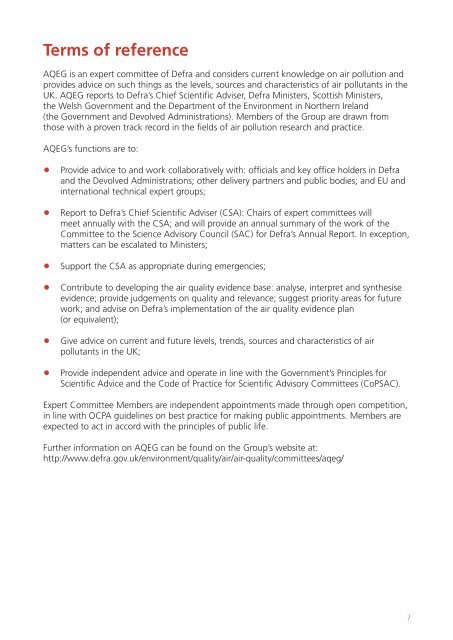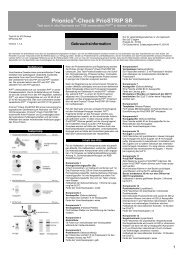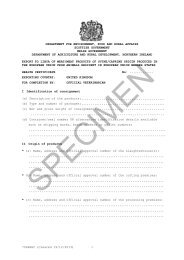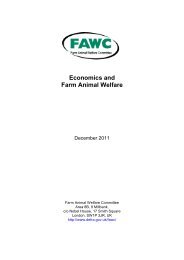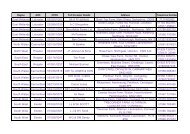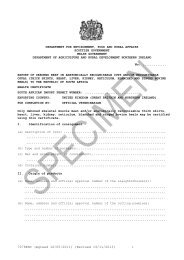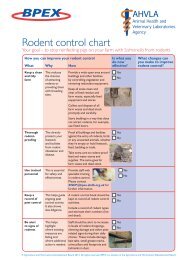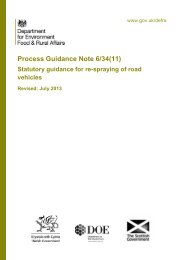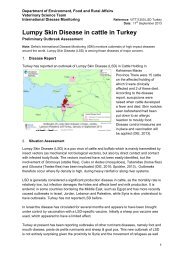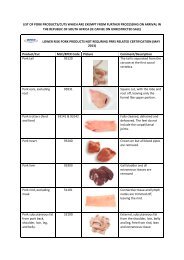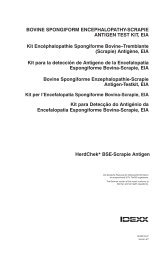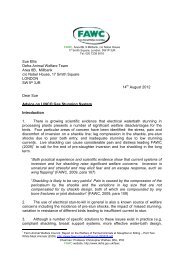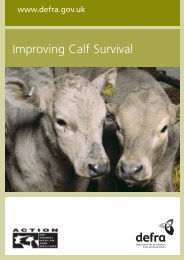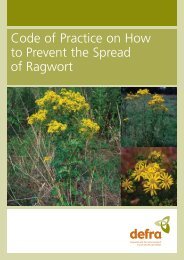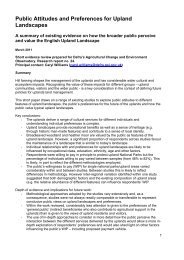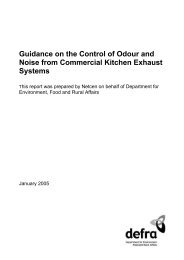Air quality expert group - Fine particulate matter (PM2.5) in ... - Defra
Air quality expert group - Fine particulate matter (PM2.5) in ... - Defra
Air quality expert group - Fine particulate matter (PM2.5) in ... - Defra
You also want an ePaper? Increase the reach of your titles
YUMPU automatically turns print PDFs into web optimized ePapers that Google loves.
Terms of reference<br />
AQEG is an <strong>expert</strong> committee of <strong>Defra</strong> and considers current knowledge on air pollution and<br />
provides advice on such th<strong>in</strong>gs as the levels, sources and characteristics of air pollutants <strong>in</strong> the<br />
UK. AQEG reports to <strong>Defra</strong>’s Chief Scientific Adviser, <strong>Defra</strong> M<strong>in</strong>isters, Scottish M<strong>in</strong>isters,<br />
the Welsh Government and the Department of the Environment <strong>in</strong> Northern Ireland<br />
(the Government and Devolved Adm<strong>in</strong>istrations). Members of the Group are drawn from<br />
those with a proven track record <strong>in</strong> the fields of air pollution research and practice.<br />
AQEG’s functions are to:<br />
• Provide advice to and work collaboratively with: officials and key office holders <strong>in</strong> <strong>Defra</strong><br />
and the Devolved Adm<strong>in</strong>istrations; other delivery partners and public bodies; and EU and<br />
<strong>in</strong>ternational technical <strong>expert</strong> <strong>group</strong>s;<br />
• Report to <strong>Defra</strong>’s Chief Scientific Adviser (CSA): Chairs of <strong>expert</strong> committees will<br />
meet annually with the CSA; and will provide an annual summary of the work of the<br />
Committee to the Science Advisory Council (SAC) for <strong>Defra</strong>’s Annual Report. In exception,<br />
<strong>matter</strong>s can be escalated to M<strong>in</strong>isters;<br />
• Support the CSA as appropriate dur<strong>in</strong>g emergencies;<br />
• Contribute to develop<strong>in</strong>g the air <strong>quality</strong> evidence base: analyse, <strong>in</strong>terpret and synthesise<br />
evidence; provide judgements on <strong>quality</strong> and relevance; suggest priority areas for future<br />
work; and advise on <strong>Defra</strong>’s implementation of the air <strong>quality</strong> evidence plan<br />
(or equivalent);<br />
• Give advice on current and future levels, trends, sources and characteristics of air<br />
pollutants <strong>in</strong> the UK;<br />
• Provide <strong>in</strong>dependent advice and operate <strong>in</strong> l<strong>in</strong>e with the Government’s Pr<strong>in</strong>ciples for<br />
Scientific Advice and the Code of Practice for Scientific Advisory Committees (CoPSAC).<br />
Expert Committee Members are <strong>in</strong>dependent appo<strong>in</strong>tments made through open competition,<br />
<strong>in</strong> l<strong>in</strong>e with OCPA guidel<strong>in</strong>es on best practice for mak<strong>in</strong>g public appo<strong>in</strong>tments. Members are<br />
expected to act <strong>in</strong> accord with the pr<strong>in</strong>ciples of public life.<br />
Further <strong>in</strong>formation on AQEG can be found on the Group’s website at:<br />
http://www.defra.gov.uk/environment/<strong>quality</strong>/air/air-<strong>quality</strong>/committees/aqeg/<br />
I


